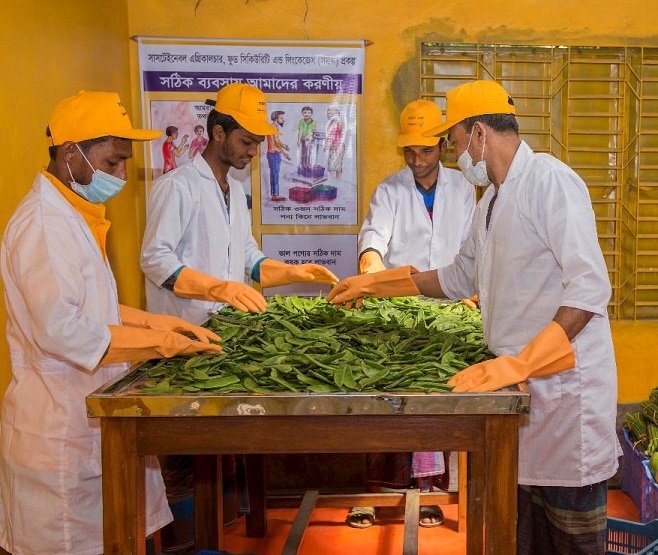
Through this model, Solidaridad supports the smallholder farmers and landless workers to adopt improved production practices, increase nutrition awareness, and add value to the supply-chain development. SaFaL resulted in positive outcomes for 58,492 smallholders in the form of increased productivity and income, as well as qualitative improvement in nutritious food intake among 292,460 people. Key results include:
- 82% of households adopted more than five improved technologies out of 14 technologies promoted by the project.
- 33% higher production and 21% increase in income with an annual cumulative trade volume of 6,631 metric tons of fish, fruits and vegetables, and 575,279 litres of milk.
- 48% of women represented in the producer groups, 46% of them are in the leadership positions of Executive Committee, while 102 of them are performing as Lead Farmers.
- 19,770 hectares’ land covered for more eco-efficient farming practices.
- 40 public-private sector companies/agencies engaged with SaFaL supported supply chain.

The Solidaridad study titled Farmer’s Behavior Change, Drivers and Barriers as well as “Spontaneous” Impact on Family and Neighbours (PDF) reveals that the drivers for production and consumption of nutritious food are motivated by the farmers’ behaviour and practices. The service providers in the SaFaL programme are critical to its success. They are instrumental in bringing positive changes in the farmers’ behaviour, value chain development, business modalities and transactions, market governance, and most importantly disseminating good practices among neighbouring farmers.
The study confirmed there have been significant changes in the consumption behavior, cooking and hygiene practices among the targeted households. Most of the households were found to regularly consume items from more than four food groups which indicates more than acceptable household dietary diversity among the targeted men, women and children.
Learn more about Solidaridad programmes in South & South-East Asia.

